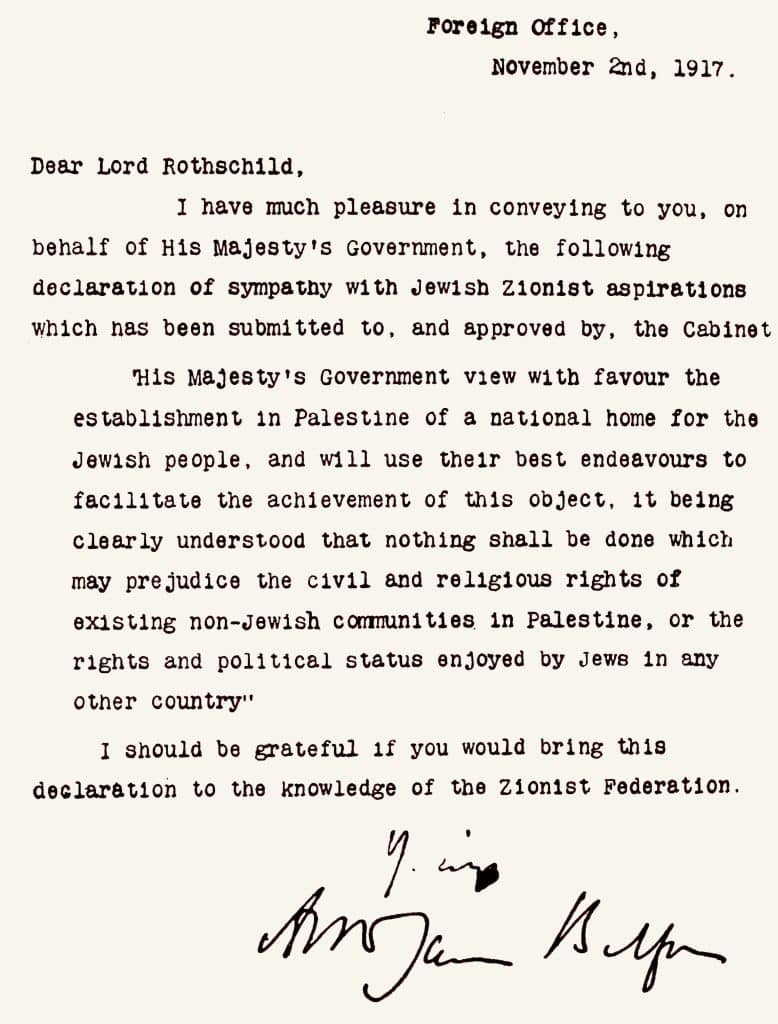During World War I, the Middle East was a critical theater of conflict, with the Ottoman Empire aligning itself with the Central Powers (including Germany and Austria-Hungary). The British sought to secure the support of various communities in the region, including the Jews, to further their war effort and strategic interests.

Support for a Jewish Homeland
The Balfour Declaration was a concise and formal statement comprising just 67 words. It expressed the British government’s support for establishing a “national home for the Jewish people” in Palestine, then part of the Ottoman Empire.
The Role of Zionism
The rise of the Zionist movement, led by figures like Theodor Herzl, had advocated for establishing a Jewish homeland, partly in response to anti-Semitic persecution in Europe. The Balfour Declaration was seen as a significant step toward realizing this vision.
Zionism

Impact on the Middle East
The Balfour Declaration had profound and lasting consequences for the Middle East. It laid the foundation for establishing the State of Israel in 1948, a central point of contention in the region.
Arab Opposition
The declaration was vehemently opposed by Arab leaders and populations who viewed it as a betrayal of their national aspirations. They argued that the land of Palestine was Arab, and the declaration disregarded their rights and interests.
Origins of the Middle East Conflict

Mandate for Palestine
After World War I, the League of Nations granted Britain a mandate to govern Palestine, which included the territory covered by the Balfour Declaration—challenges accompanied this mandate as Britain tried to balance its commitments to Jewish and Arab communities.
Post-World War II Developments
Following World War II and the horrors of the Holocaust, international sympathy for Jewish refugees played a significant role in establishing the State of Israel. In 1947, the United Nations proposed a partition plan for Palestine, leading to the creation of Israel in 1948.
Ongoing Legacy
The Balfour Declaration’s legacy is complex and remains a source of contention. It symbolizes the historical connection between Jews and the land of Israel while also representing the displacement of Palestinian Arabs, leading to the Israeli-Palestinian conflict that endures today.
Conclusion
The Balfour Declaration marked a pivotal moment in the history of the Middle East. It reflected the political and strategic interests of its time, but its consequences have shaped the region’s trajectory for over a century. Understanding the context and implications of this declaration is crucial for comprehending the complexities of the Israeli-Palestinian conflict and the broader dynamics of the Middle East.

